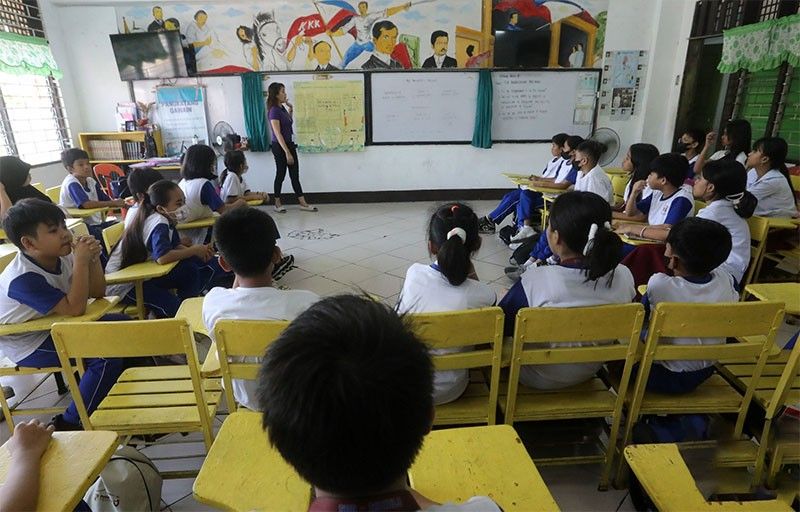Marcos urged to sign bill doubling teaching supply allowance

MANILA, Philippines — With less than seven days before the Congress-approved Kabalikat sa Pagtuturo lapses into law, the Alliance of Concerned Teachers (ACT) yesterday called on President Marcos to sign the measure.
“The bill to double public school teachers’ current P5,000 teaching supplies allowance starting school year (SY) 2025-2026 was submitted to Malacañang on May 3, 2024. President Marcos only needs to sign to enact it,” the ACT said in a statement.
The ACT is one of the groups that campaigned and lobbied to increase the allowance for teaching supplies.
ACT Teachers party-list spearheaded the measure in the House of Representatives, which was passed in December last year with the approved provision of P7,500 for SY 2024-2025 and P10,000 for SY 2025-2026 onwards.
Only P5,000, however, has been granted for SY 2024-2025 in the reconciled Senate Bill 1964 and House Bill 9682 of the bicameral conference committee.
The group earlier warned Marcos against vetoing the bill, saying it would cause outrage among teachers.
“The President should not delay the proposal’s enactment to double the teaching allowance of public school teachers. Teachers have been paying for teaching needs for a long time, and P5,000 per year is insufficient. Even the refurbishing of classrooms every Brigada Eskwela is also paid through money from teachers’ own pockets,” ACT chairman Vladimer Quetua said.
“We also warn the President to refrain from vetoing the measure as it would enrage teachers if he repeats his stinginess against them after previously vetoing the bill exempting election service honoraria and allowances from taxation barely a month into his position,” Quetua added.
Old calendar
Meanwhile, Kabataan party-list Rep. Raoul Manuel yesterday welcomed the return of the old school calendar for basic education, but sought the same for higher education institutions (HEIs).
Manuel said Kabataan does not oppose the government’s move to revert the academic calendar to allow students to begin classes by June and end by March of the following year.
He noted that the Commission on Higher Education should review the policies of many colleges and universities, which start their academic calendar in August or September.
Since the University of the Philippines moved its calendar in 2014, many universities followed “for the sake of being internationally competitive,” according to the lawmaker.
Manuel, however, maintained that until now, there is still no evidence that the move has improved the quality of education in the country.
“We just went along with the standards of the foreign universities and companies, but still, our students were left behind,” he said.
He reiterated that “this colonial calendar shift never should have happened.”
“It is cosmetic, unscientific and unnecessary. Let’s also revert the school calendar for college to June,” Manuel added. — Sheila Crisostomo
- Latest
- Trending



























